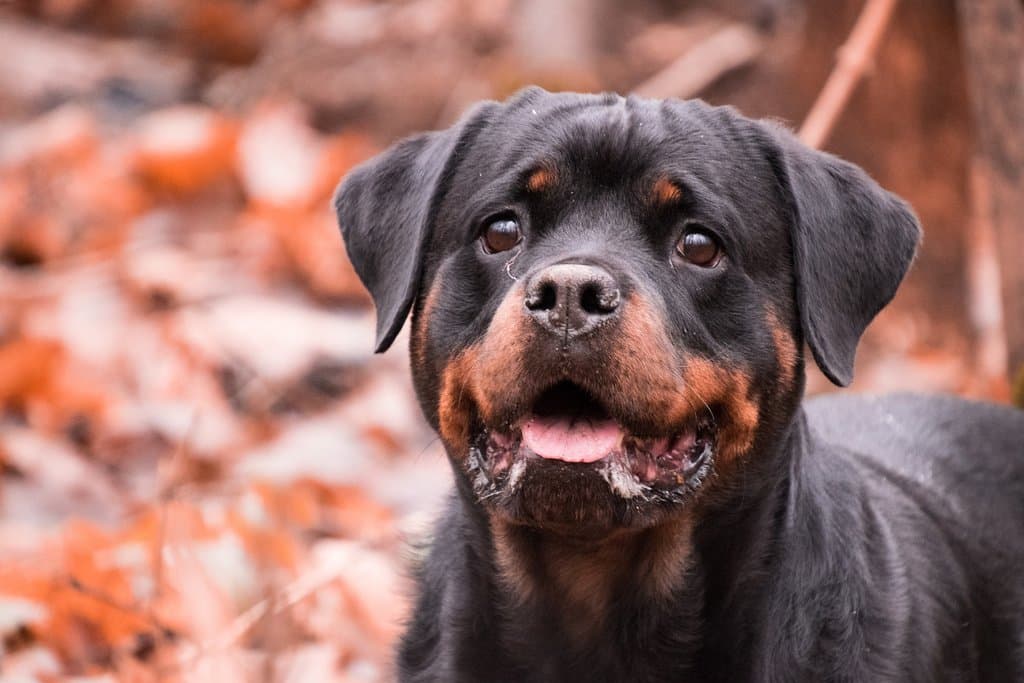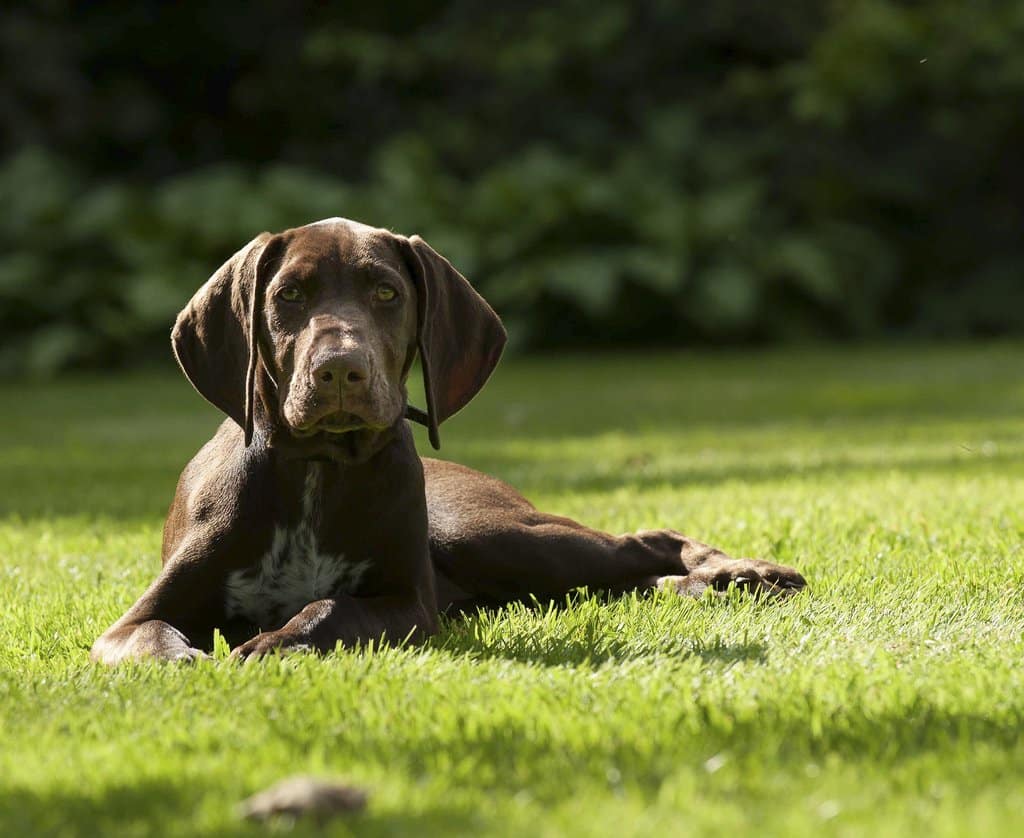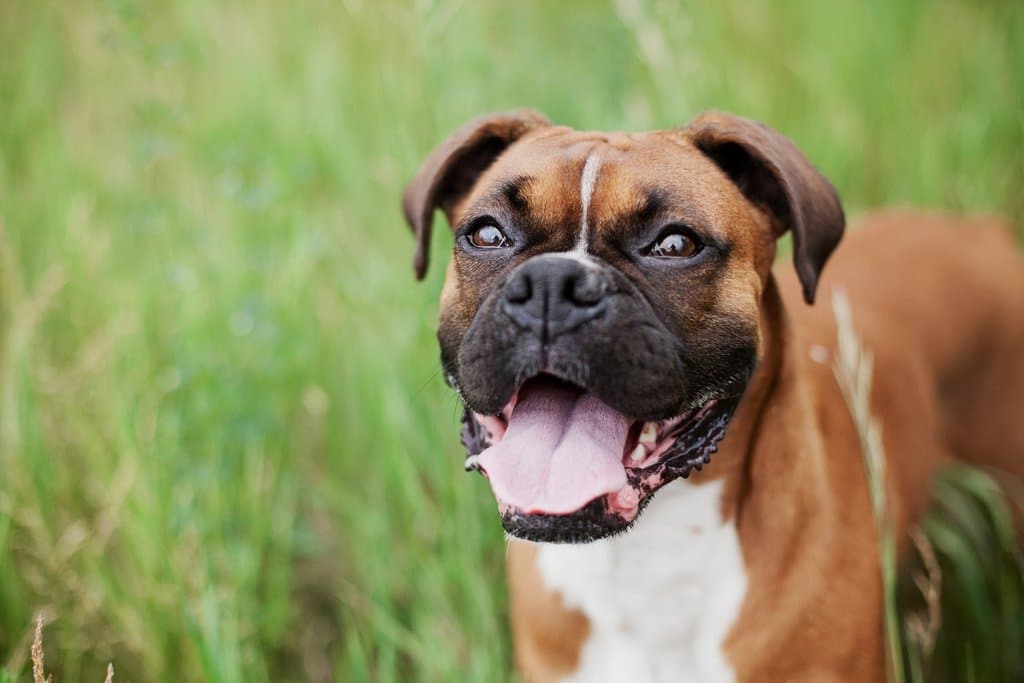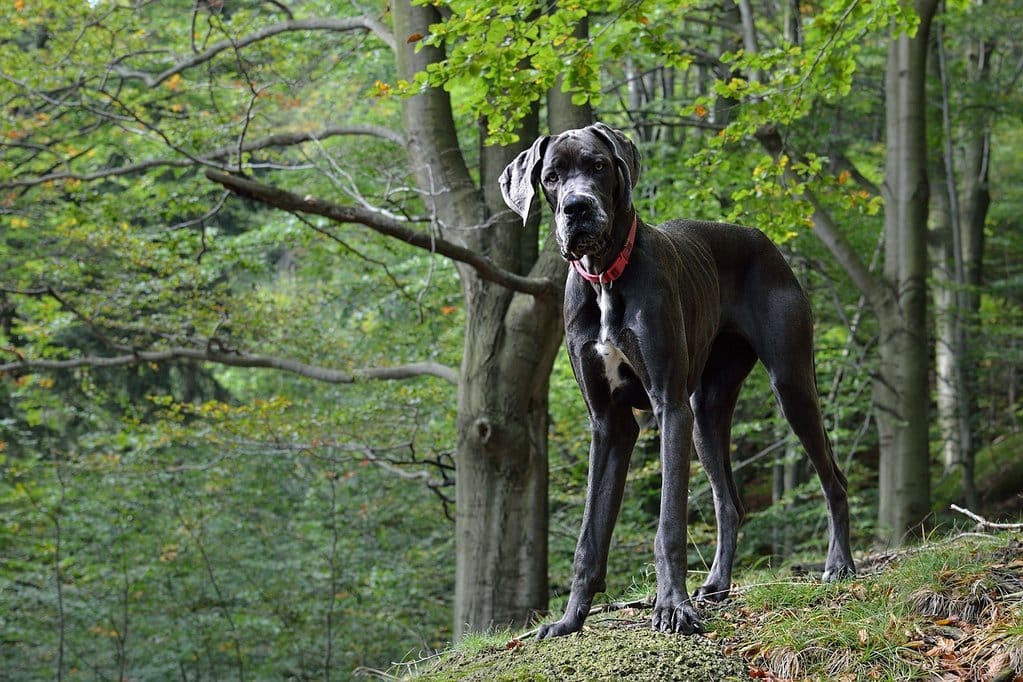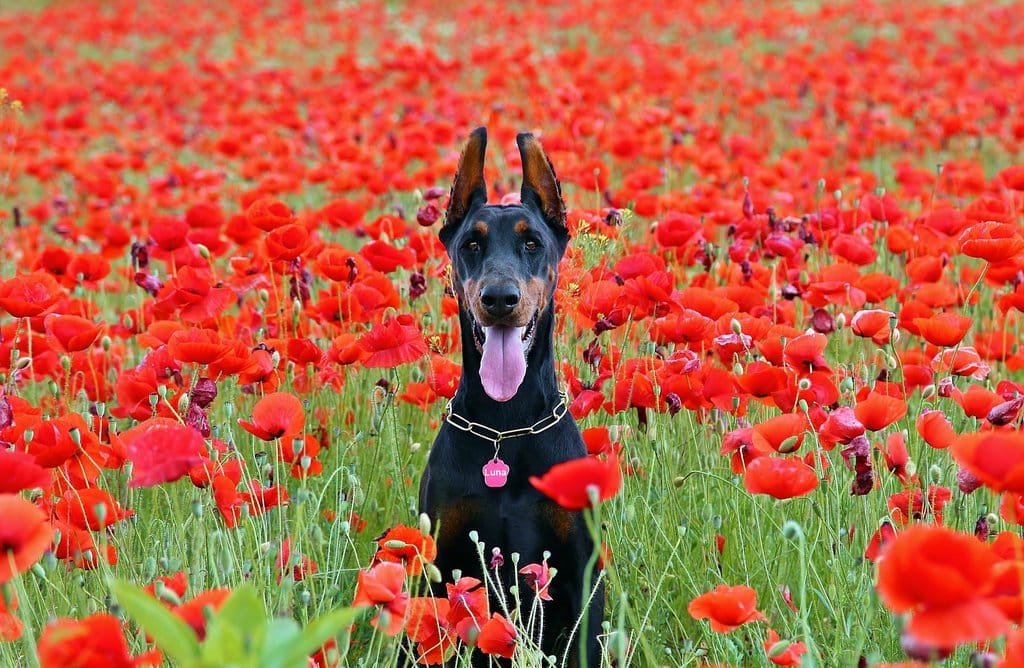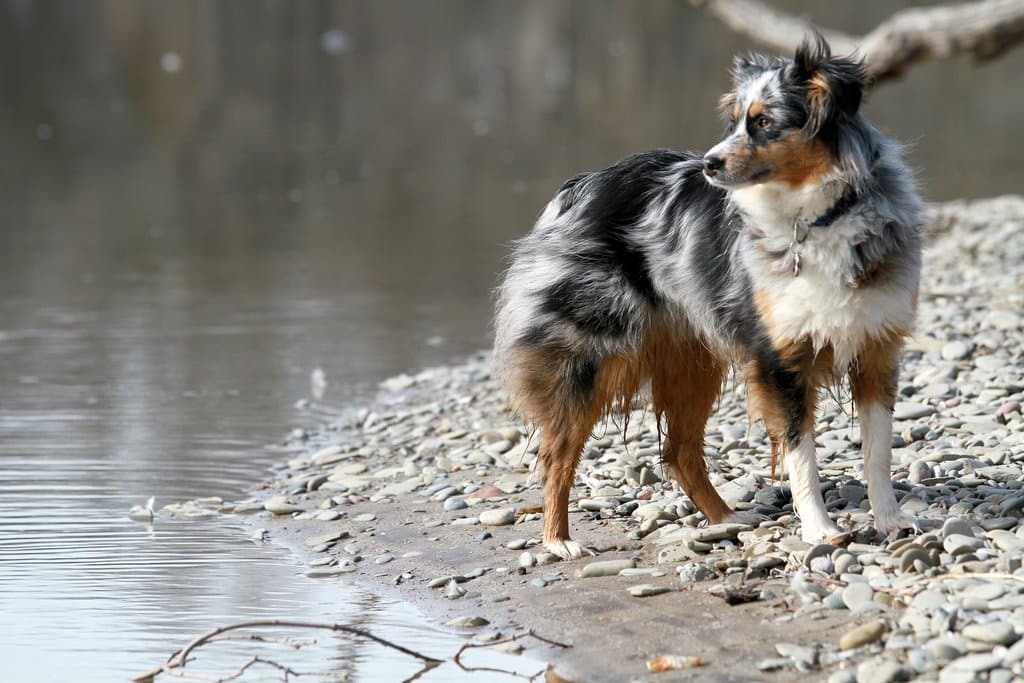Large dog breeds are loving, loyal, and extremely popular. But their nutritional needs differ from those of smaller breeds.
In this article, we’ll discover the best dog food for large dogs, no matter what breed you have.
(Do you have a small or medium-sized dog? We have ingredient suggestions for them, too!)
1. Labrador Retriever
Labradors are one of only six dog breeds that produce oil through their skin. This helps their coats stay thick and shiny; without proper amounts of fatty acids in the diet, their fur will be dry and brittle.
Labs originated in Newfoundland and were bred to thrive on a high-fat, low-carb diet. Poultry, fish, eggs, brown rice, and vegetables are perfect for this breed, while beef should be avoided, as it’s difficult for Labradors to assimilate.
Rick’s Dog Deli Meal Match: Pacific Whitefish Blend
2. German Shepherd Dog
German Shepherds have a short colon in comparison to other dog breeds. Because of this, they need a high fiber diet to slow digestion and give their bodies enough time to absorb nutrients from their meals.
German Shepherds do best on a diet of beef, potato, and leafy greens.
Rick’s Dog Deli Meal Match: Western Beef
 3. Golden Retriever
3. Golden Retriever
Golden Retrievers are another breed that produces oils through the skin instead of dander, so fatty acids are key for optimum coat health. When fed linoleic and oleic fatty acids, their bodies can produce the arachidonic acid which makes their coats so soft and shiny.
The ideal diet for a Golden Retriever would include poultry, oats, and vegetables with limited amounts of beef.
Rick’s Dog Deli Meal Match: Midwestern Chicken
4. Rottweiler
The muscular and skeletal systems are slower to develop in Rottweilers, so keep them on a puppy feeding schedule and meal formulation until they are 18 to 24 months old. Feeding them adult food too early could lead to muscle and bone issues later in life.
Lamb, poultry, and dairy products are ideal for this breed, and a high fat content will keep their coats nice and shiny.
Rick’s Dog Deli Meal Match: Midwestern Chicken
5. German Shorthaired Pointer
As a breed, the German Shorthaired Pointer is very old, originating in 12th century Turkey. Poultry, goat, fish, figs, grapes, and olives would have featured heavily in their diet, and the modern-day German Shorthaired Pointer will benefit from this type of diet as well.
This breed thrives best on fatty oils derived from vegetables as well as proteins high in methionine, leucine, and lysine requires high fat content and certain proteins. Poultry, fish, lamb, avocado, and rice are great ingredients to look for.
Rick’s Dog Deli Meal Match: Pacific Whitefish Blend
6. Boxer
Boxers are prone to bloating and excess intestinal gas, due in some part to their colons and partly to the pancreas. The pancreas in this breed produces digestive enzymes at a different rate than other large breeds, so feeding an “all-breed” diet may cause gastric upset and bloating in a Boxer.
Boxers are also prone to dental problems, so soft, moist dog foods like those found at Rick’s Dog Deli are easier on their gums and teeth.
Rick’s Dog Deli Meal Match: Western Beef
7. Siberian Husky
Originating from the cold, snowy climate of Siberia means that Siberian Huskies have developed a need for a low-carbohydrate, high-protein and high-fat diet. The proper balance of linolinec, linoleic, and oleic fatty acids will keep their coats healthy.
A diet based on fish and poultry is ideal, as this is the diet that the first Huskies ate.
Rick’s Dog Deli Meal Match: Pacific Whitefish Blend
8. Great Dane
Great Danes had suffered from a bad reputation over the years, but they really are a “gentle giant.”
They thrive on a high-fiber diet; too little fiber, and they are prone to bloat and torsion (when the stomach becomes twisted from excess gas). Beef, whole oats, rye and potato are the best options.
Rick’s Dog Deli Meal Match: Western Beef
9. Doberman Pinscher
Compared to other large breeds, Dobermans need a diet rich in the amino acids phenylalanine and thyrosine. The diet these dogs were given in Germany (where the breed was first developed) are perfect sources of these amino acids and should still be used today.
Pork, beef, and barley are ideal.
Rick’s Dog Deli Meal Match: Carolina Pork & Beef
10. Australian Shepherd
Australian Shepherds originated on ranches and farms in the Australian Outback. Because they were bred to chase and herd cattle, this is a high-energy breed with caloric and water needs to match.
Poultry, eggs, potatoes, and other veggies from a moist, whole food source should provide your Australian Shepherd with the nutrients it needs.
Rick’s Dog Deli Meal Match: Midwestern Chicken
Conclusion
In short, there is no single best dog food for large dogs. Each breed is different, with varying health issues and nutritional needs that require a multitude of dietary solutions.
It’s important to note, however, that these meal suggestions are based on a standard, healthy dog. If your dog is overweight, or suffering from a health condition, his or her needs will be different.
If you have any questions or you’d like help developing a customized diet for your dog’s individual needs, contact us through our website or give us a call at 407-505-2839. We want to see your dog thrive!

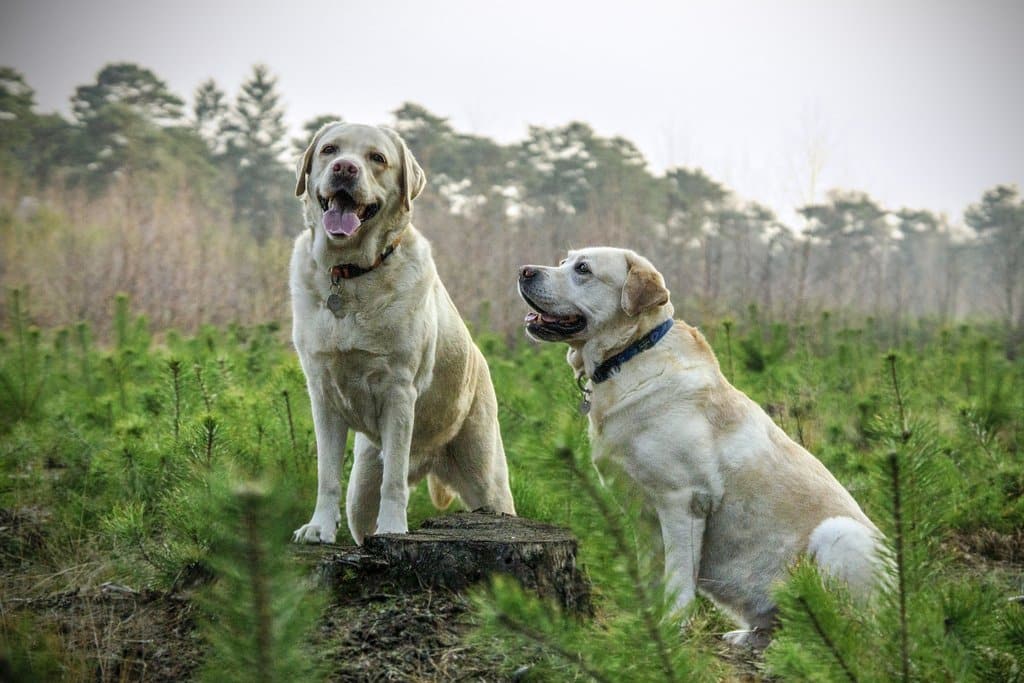
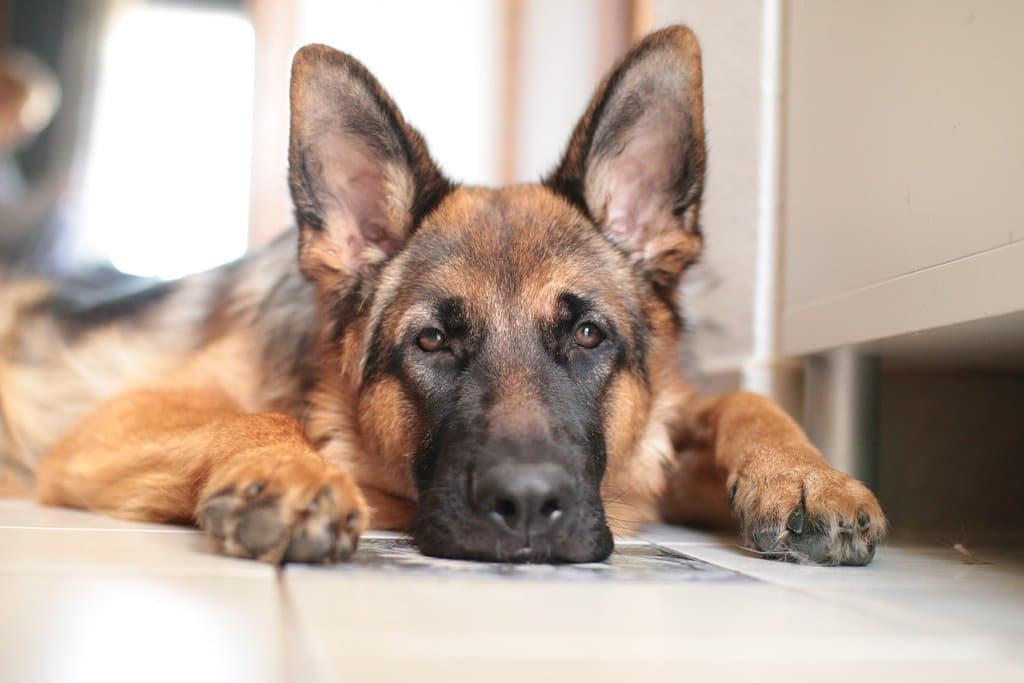
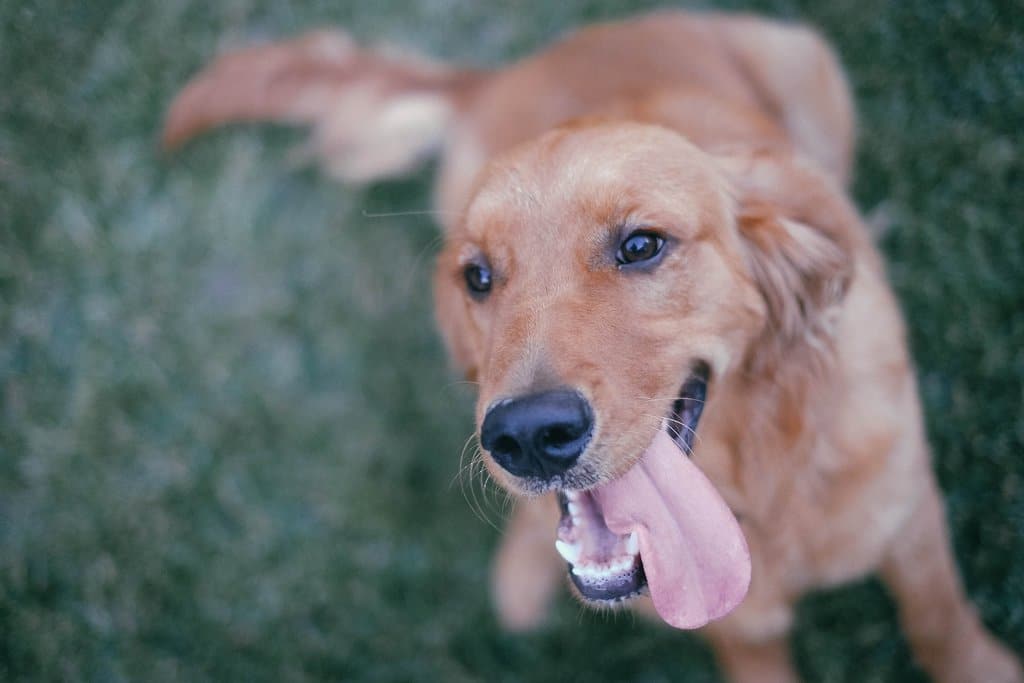 3. Golden Retriever
3. Golden Retriever